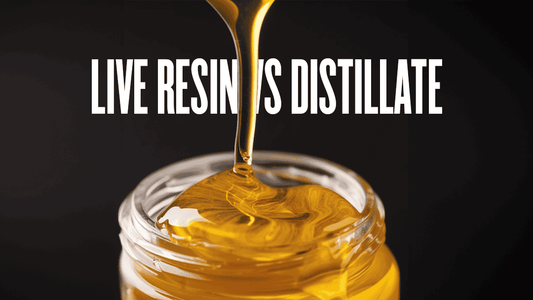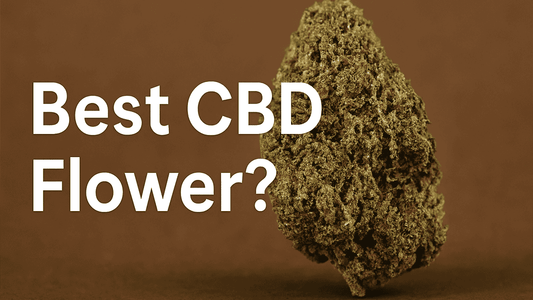The Paradox of UK Hemp
The UK is home to one of Europe’s largest CBD flower markets, however, there’s some very complex red tape that prevents UK farmers from getting in on the action. Most of us have heard of CBD by now, but did you know that there are farms in the UK legally growing hemp plants that, at first glance, look identical to cannabis plants that get people high? These farms are among the few that have obtained a license to cultivate hemp, the low-THC version of cannabis, here in the UK. There’s one catch to this licence, though – they cannot harvest the CBD flowers that contain the most valuable part of the plant.
Meanwhile, all over Europe, hemp farmers can easily obtain hemp cultivation licenses and freely harvest and trade the CBD flowers to the global CBD flower market. These farms have created thousands of jobs all over Europe and helped to increase the quality of life for many thousands of customers. If you’ve enjoyed CBD flower in the past, you’ve most likely benefited from these European farms!
Why does this matter to you? The fact that you’re reading this means that you’re probably a CBD or cannabis enthusiast. Have you ever wished you could work in this industry? Have you ever wondered how your life could be improved if more cannabis businesses became taxpayers in the UK? Often ,we’ve heard activists argue that legalising cannabis would bring in more tax revenue to help improve the state of our country. We’re missing out on a great economic opportunity.
A Short History of Hemp in the UK
Hemp has played a major role in the UK for hundreds of years. It was used to manufacture naval ropes, textiles, and even Henry VIII mandated hemp growth. However, in 1928, hemp prohibition came into effect, and the UK formally added cannabis to the Dangerous Drugs Act 1920, banning its cultivation without special permission. Because hemp is the low-THC version of cannabis, it was treated as the same plant. For most of the 20th century, hemp disappeared from British farms, even though hemp isn’t intoxicating.
Change came in 1993, when the government began to reissue industrial hemp cultivation licenses, allowing farmers to grow low-THC cannabis strains. The Home Office was put in charge of these licenses, but a caveat was placed on the farmers. They were allowed to grow hemp for seed and fibre, but not for its CBD flowers or leaves.
Soon after these licenses were issued, a movement of hemp optimism took effect, and people started to describe hemp as a “wonder crop.” People believed that due to the nutrients found in the plant and its various properties, the hemp industry could revive rural economies. Hemp made headlines as a sustainable textile and paper source, a building material, and a health food ingredient. At the time, the UK was still part of the EU, and this brought in EU subsidies that encouraged hemp cultivation, adding further optimism that this could be the start of a green rural industry revival.
Despite all this, the current UK hemp industry is outdated. While other countries have realised the hemp dream that the UK had in the 90s, we’ve seen very little change here at home.
What UK Law Says About Hemp Buds
When the Home Office issues farmers with their industrial hemp licence, farmers have to ensure that they will not harvest any of the leaves or flowers of their hemp plants without going through the Home Office first. This is because the Home Office requires all farmers to destroy these essential parts of the plant, often by burning them. This restricts farmers from entering the most lucrative part of the hemp industry, the CBD flower market.
The law restricts use to just the stalks and seeds, which can help to produce various products such as textiles and hemp seed oil. Farmers have spoken about how the demand for hemp fibre is low because it is an expensive alternative to more mainstream fibres, and similarly, hemp seed oil is a specialist ingredient that many people do not use.
What causes more frustration for these hemp farmers is that CBD oil, extracts and CBD flowers are still sold and widespread in the UK, however, they must be imported instead of being made with British CBD flowers. Oddly, this issue has been going on for decades now.
The EU Approach to Hemp
Across the EU, hemp farmers enjoy a much more positive industry. For decades, the EU-wide threshold for hemp cultivation was anything under 0.2% THC, and this was raised to 0.3% THC in 2021. That means that the EU actually increased the legal limit of THC in European hemp, addressing a problem farmers faced when their plants would creep slightly over the original legal limit.
In Europe, you’ll find hundreds of hemp farms in countries like Switzerland, Italy and France, harvesting and selling CBD flowers freely. EU hemp farmers can trade their harvested CBD flowers across borders, developing a competitive CBD flower market. This has brought the quality of CBD flower up, while putting pressure to bring the price down for customers.
While UK farmers burn their CBD flowers, EU farmers profit from them. Hemp farming can be both indoor and outdoor, and is therefore not just a seasonal industry. Many hemp farms in Europe are full-time businesses, employing thousands of people and contributing millions towards their local economies.
What the Research Says
The market for CBD-rich hemp plants and CBD flowers matters for more than just the economic impact that they could have. They have considerable wellness benefits to millions of people.
In a recent medical study on anxiety, it was found that cannabis containing high CBD and low THC significantly reduced anxiety symptoms in participants both immediately after use and over a 4 week period compared to THC-dominant cannabis. This highlights the calming effect of CBD-dominant flower, something that could be essential for many people.
According to the Mental Health Foundation 2022/2023, 37.1% of women and 29.9% of men in the UK reported high levels of anxiety, a big increase from the previous 2021/2022 figure, which showed that 21.8% of women and 18.3% of men reported high levels of anxiety. These are people who could potentially benefit from the plants that UK farmers are forced to burn every year, something that seems to be irrational.
The Impact on UK Farmers & Industry
UK farmers are missing out on major revenue compared to their EU competitors. Studies find that UK farmers are struggling and need an increase in opportunities. However, their opportunities are being handed over to our neighbouring European countries, who are seeing an increase in revenues and taxable income.
Many UK hemp farmers have unfortunately had to give up on the hemp market as it simply is not viable without CBD flower sales. The irony is that there is a huge demand for the CBD flowers that they grow legally, but they are not allowed to remove the flowers from their plants unless it is to burn them.
These farmers are not alone in their struggle. Several groups join them in lobbying efforts, such as the British Hemp Alliance. They meet with policymakers regularly to fight for their industry as well as support farmers who face seizure of goods when problems arise in their cultivation.
The situation is frustrating, however, we should remain optimistic. There is a legal hemp industry in the UK, and CBD flowers are in high demand. What is needed are small changes to the hemp cultivation laws to allow the UK to become a leader in the European hemp industry.
The Consumer Paradox
Despite all these issues for hemp farmers, CBD flowers are very easy to find and buy in the UK – and only if they are imported. We’ve been filling the gap since 2018, working closely with hemp farmers all over Europe to bring the highest quality CBD flowers to our UK customers. Take a look at our CBD flower page and you’ll see just how advanced the industry has gotten, with not just a huge range of options, but also low prices.
Eventually, there will come a day when we can add UK-grown CBD flowers to our CBD flower range. But it’s hard to know when that day will come. We hope that by raising awareness of this issue, we can help move the conversation forward for the hemp industry.
The Future of UK Hemp
Inevitably, hemp cultivation reform will come to the UK. We already have the expertise, the plants have been growing here for decades, and UK-grown CBD flowers are high quality. It seems unlikely that anything will change this year, given the turbulent economic and political world we currently live in.
Brexit did not help the UK hemp industry, as the UK was no longer bound to the EU hemp rules that have been progressively supporting hemp farms over the past few years. Any change in hemp rules will have to come directly from the UK government. Groups like the British Hemp Alliance are pushing for change, informing the government about the economic opportunities such as increased jobs, tax revenue and rural revival.
There is no knowing how things will look in the short term, but we are certain that one day, CBD flowers will be legally harvested and sold from UK-grown hemp plants.
A Market Waiting to Bloom
As you can see, the hemp industry is a paradox: UK hemp can be grown, but its most important parts must be destroyed. This hasn’t stopped the UK from importing CBD flowers from EU farmers, showing a huge inefficiency in the industry and lost income for hard-working UK hemp farmers. Not only are these farmers missing out on economic opportunities, but CBD flower has potential health benefits that are being restricted.
We are still fortunate that CBD flower can be imported into the UK, and that we have an industry. The future of this industry is in the hands of regulators; hopefully, they can support both the farmers who need help to reclaim their market share from EU farmers and the people who rely on these CBD plants and flowers to benefit their quality of life.

 4.6 Rating. Excellent.
4.6 Rating. Excellent.




